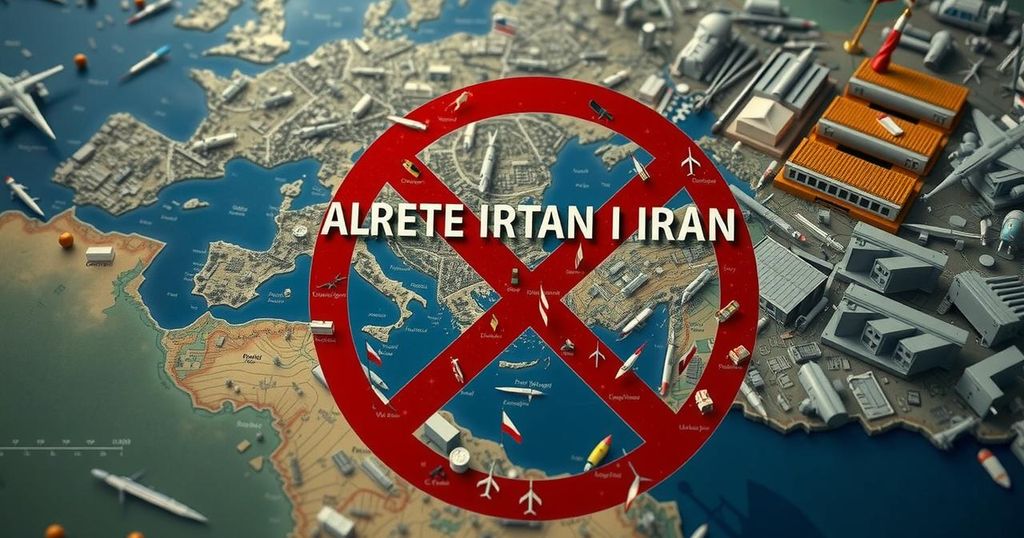Iran’s Foreign Minister declared that neighboring countries have committed not to allow their soil or airspace to be used for attacks against Iran. This follows increased tensions after Iran’s missile strike on Israel on October 1. Iran warned that the United States would be held accountable for any Israeli retaliation, as both nations grapple with the implications of military engagement in the region.
In recent statements, Iranian Foreign Minister Abbas Araghchi asserted that neighboring countries have committed not to permit their territory or airspace to be utilized for attacks against Iran. This declaration comes in the wake of heightened tensions following Iran’s missile strike on Israel on October 1st. Araghchi made these remarks during a press conference held in Kuwait, emphasizing the assurances received from Iran’s neighbors amidst Israel’s contemplation of a military response. Additionally, Iran conveyed a stern warning to the United States, stating that it would be held responsible for any retaliatory actions taken by Israel against Iran, especially following remarks made by President Joe Biden that hinted at an understanding of Israel’s planned response. This declaration was labeled “profoundly alarming and provocative” by Amir Saeid Iravani, Iran’s ambassador to the United Nations, in correspondence directed to UN Secretary-General Antonio Guterres. Furthermore, during a press conference, it was highlighted that Israel, engaged in warfare with Hamas and Hezbollah, had vowed retaliation against Iran concerning the missile attacks, which reportedly targeted Iranian Revolutionary Guard personnel as well as Hamas and Hezbollah leaders. Israeli Prime Minister Benjamin Netanyahu indicated to President Biden that he intends to carry out strikes on Iranian military positions, deliberately excluding nuclear or oil sites from potential targets. In conclusion, Iran’s diplomatic communications reflect significant concern over the regional security dynamics and potential military escalations. The Iranian government is actively seeking assurances from its neighbors while preparing for possible retaliatory actions from both Israel and the United States.
The context of this article centers on escalating military tensions between Iran and Israel, against the backdrop of broader regional conflicts involving various groups such as Hamas and Hezbollah. Iran’s missile strike on Israel was purportedly in retaliation for the deaths of individuals linked to these groups, indicating a retaliatory posture that has prompted concerns from both regional and international players. The involvement of the United States and its perceived backing of Israeli military actions adds further layers to the conflict, as Iran asserts that it will hold the US accountable for any aggression directed towards it.
Iran’s Foreign Minister has underscored the assurances from neighboring states to refrain from allowing their territories to be used against Iran, amidst ongoing tensions following Iran’s missile attacks on Israel. The Iranian leadership maintains a critical stance towards the US, emphasizing its potential role in instigating further conflict through its support of Israel’s military actions. These developments signal a precarious balance of power in a volatile region, with the prospects for peace remaining uncertain.
Original Source: jordantimes.com






